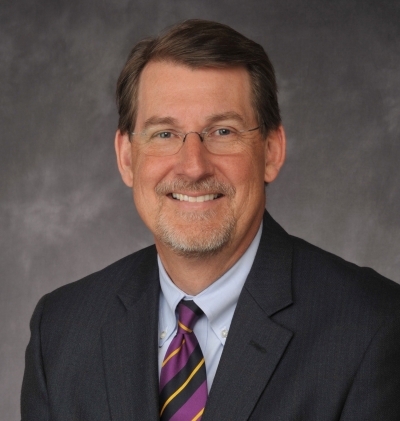Dennis P. Lund, MD, serves as CMO of Stanford (Calif.) Children's Health and Lucile Packard Children's Hospital Stanford, and associate dean for maternal and child health at the Stanford School of Medicine.
On April 11th, Dr. Lund will speak on a panel as well as give a presentation at Becker's Hospital Review 9th Annual Meeting. As part of an ongoing series, Becker's is talking to healthcare leaders who plan to speak at the conference, which will take place April 11-14, 2018 in Chicago.

To learn more about the conference and Dr. Lund's sessions, click here.
Q: What are the disruptors that have your attention? Why?
Dennis P. Lund: When I saw this question about disruptors in healthcare, my first though was digital health initiatives — it's something I've seen permeate almost everything I touch as a CMO. That said, we do not know yet what the delivery of healthcare will look like in, say, 2025, but we do know one thing — it's not going to be the same way we're delivering it today. We already see that telehealth will play a large role, as will digital encounters with physicians and providers of all kinds.
As millennials and younger generations become the parents who are buying healthcare services, convenience and access are both going to be paramount considerations when it comes to their decision making. Therefore, we are going to have to redesign our care delivery systems around the patients themselves, rather than around providers. This sort of patient-centered care ranges from traditional telehealth, or looking at a provider on a computer screen, all the way down to wearables, which offer constant monitoring and continuous connectivity. In order to do this, though, there will have to be some sort of monitoring device involved. The technology for these sorts of monitoring devices is already available; now, it's up to healthcare systems to scale this technology in the coming years.
Q: All healthcare is local. What about your specific market influences your organization's business or operations most?
DPL: The northern California market has become quite consolidated and looks like it will continue to consolidate. Fundamentally, there are a limited number of large tertiary pediatric providers in the Bay Area region, which makes our market unique. With limited primary and specialty care support, government-funded patients, often complicated or critical in nature, are dispersed amongst northern California pediatric providers disproportionately. Right now, the concern we have is that if there is a substantial reorganization of how Medicaid is financed moving forward, the number children who can be cared for under government programs becomes subject to substantial risk. We need to ensure that children do not get swept up into a broader government reform, as it could detrimentally affect how these pediatric patients are treated. This fear is true in a lot of markets in the U.S., but it is particularly relevant in northern California.
Additionally, and somewhat related to the above discussion, is that building a pediatric delivery system is difficult because pediatric specialists are in short supply. To use an example close to home, at Stanford Children's Health, we've been tasked with developing a pediatric healthcare delivery system that can somewhat serve as a "plug-and-play" model for other adult providers. This, in addition to our position as an education and training institution, has allowed us to collaborate and build relationships with other healthcare systems, such as [Walnut Creek, Calif.-based] John Muir Health and [San Francisco-based] Dignity Health to name a couple.
Q: As a leader, what is the best investment you made in your own professional development in the past five years?
DPL: For myself, I have typically made sure that I have invested time in some sort of personal enrichment courses throughout my career — whether that be leadership training, quality and safety training, or even some more basic healthcare finance training. These courses, which aren't long, usually spanning a week or two, allow me and my fellow colleagues to step away from our daily routines, giving us the chance to spend a brief period of time discovering new things with a different set of people, from a vastly different vantage point.
At Stanford, physical wellness is important — as it is for many institutions out there. In fact, I believe Stanford became one of the first institutions — if not the first — to recruit a chief wellness officer, Tait Shanafelt, MD. Through Dr. Shanafelt, we're looking into a variety of programs and support activities centered around physician wellness. It all comes down to this: if we don't have happy and healthy physicians, we cannot provide quality care.
On April 11, Dr. Lund will speak on a panel at Becker's Hospital Review’s 9th Annual Meeting highlighting the evolving role of the CMO, in addition to presenting on how specialty and subspecialty shortages can impact a hospital’s business strategy. As part of an ongoing series, Becker's is talking to healthcare leaders who plan to speak at the conference, which will take place April 11-14, 2018 in Chicago.
To learn more about the conference and Dr. Lund’s sessions, click here.


